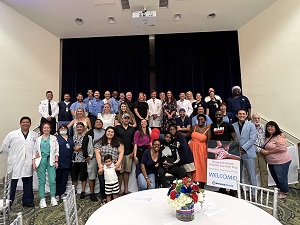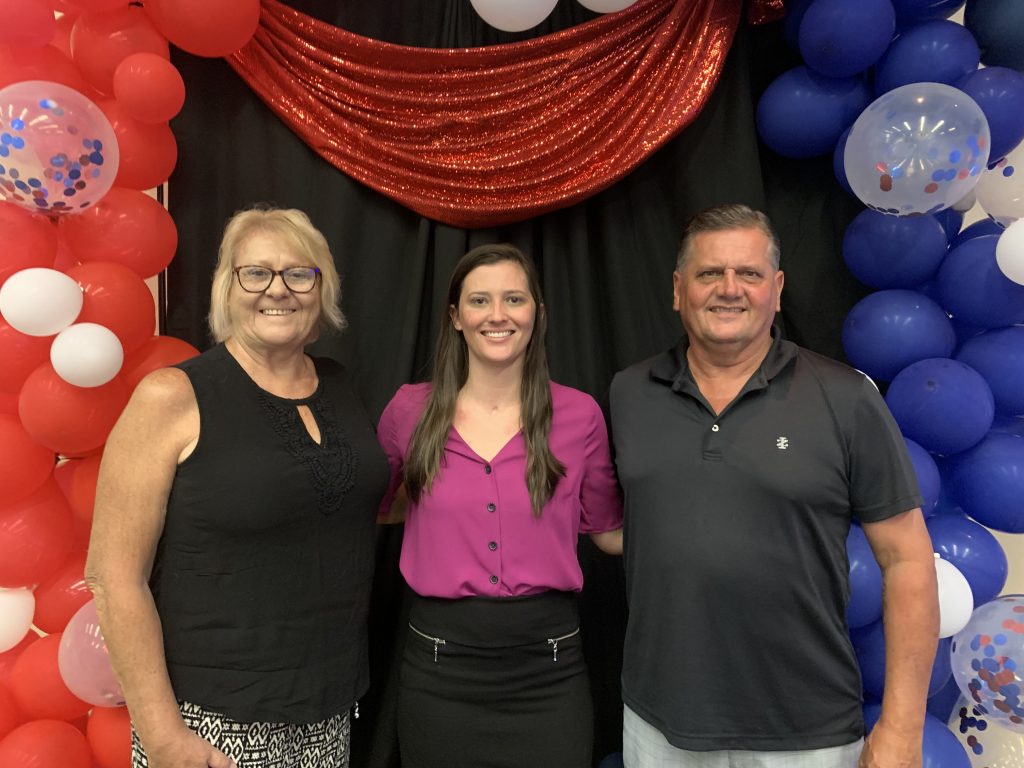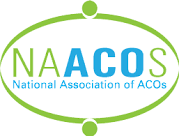On May 18, Broward Health recognized National Trauma Survivors Day with a tribute to the healthcare system’s Emergency Medical Services (EMS) partners, medical team and trauma patients.

“Trauma is considered the nation’s leading cause of death for people under the age of 45,” Dr. Ivan Puente said during the evening celebration at Broward Health North in Deerfield Beach. Dr. Puente is the medical director of trauma and critical care at Broward Health Medical Center. “In trauma, we talk about the golden hour. The first 60 minutes are critical for the trauma patient’s survival,” he said.
During the event, patients like Andres Perez-Molina, who was nearly paralyzed after a fall at his home in 2020, and Jessica Walisch, who was ejected from a vehicle onto I-595 in 2016, shared their gratitude for the doctors, nurses and therapists who helped them recover from life-threatening injuries.
Walisch and Perez-Molina survived serious accidents because of the quick response times, expertise, and advanced care provided by EMS teams and Broward Health’s medical professionals who specialize in trauma care. Broward Health Medical Center and Broward Health North are nationally designated Level I and Level II Trauma Centers, respectively.

Walisch had a severe brain injury and doesn’t recall much from her time at Broward Health Medical Center. What she does remember is the care she received. The hospital “is pretty much the whole reason I can stand here today and talk to you guys about my story, about the nurses and social workers,” she said. Walisch, who works as a radiation therapist in Miami-Dade County, said “I’ve been surprisingly able to do a lot more than I thought I would be able to do, and that’s all because of the care I was given.”
During the tribute, Perez-Molina described how he had to re-learn how to walk and use a zipper.
“The most beneficial part of therapy had to be occupational,” he said. “I’ve had leg injuries, I’ve had arm injuries, so I’ve gone through physical therapy. I never had to re-learn how to type, draw, write, eat,” he said.
The Broward Health North therapists “warned me it was going to be very frustrating.” The gravity of the work that needed to be done became clearer when Perez-Molina started practicing “the hand-coordination and those fine motor skills needed to use a zipper, shoe laces or buttons — which I still struggle with,” he said. Perez-Molina credits the occupational therapy with bringing him “a great foundation” to enjoy the process while challenging himself to do new things.



























